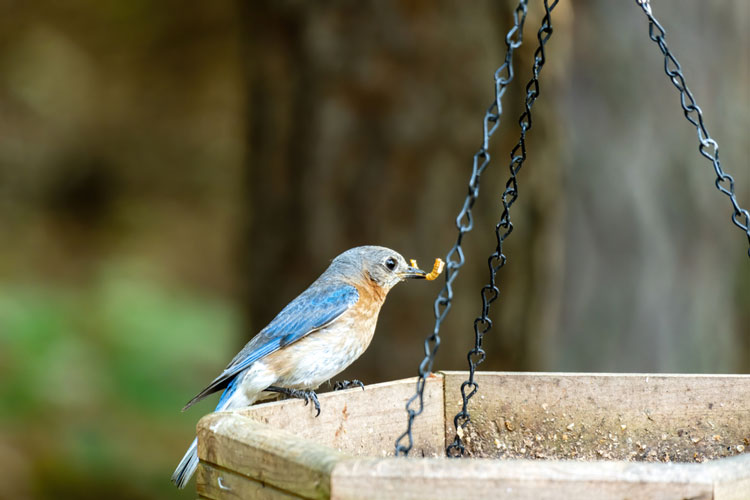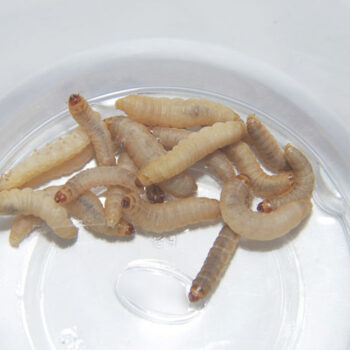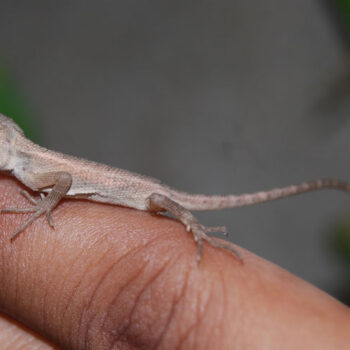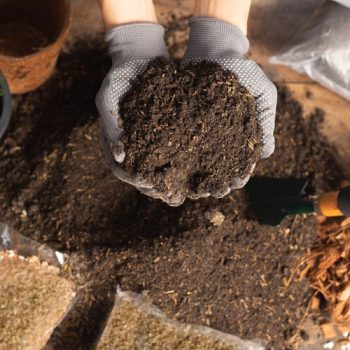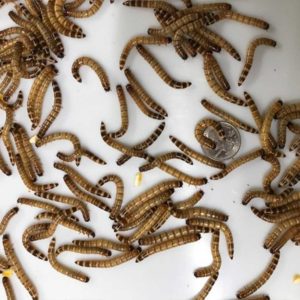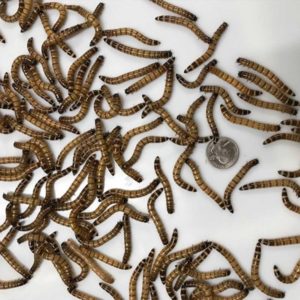Bluebirds feed on both live mealworms and dried mealworms. You can either serve mealworms directly or mix them with other foods like seeds or fruit. It is vital to source live mealworms for bluebirds from reliable feeder suppliers to ensure a consistent blend of fat, protein, calcium, and fiber.
Additionally, bluebirds prefer mealworms to bird seeds since it is a natural part of their feeding instinct to crave protein. While the birds aren’t naturally inclined to visit bird feeders, live, juicy mealworms can attract the delightful, blue-winged creatures to your garden. You may note that bluebirds prefer live mealworms to dried ones.
Natural Part of their Diet
Mealworms and other similar insects are a normal part of bluebirds’ diet. Garden birds like bluebirds thrive on fat and protein-rich worms. Bluebirds have an active lifestyle and use up a lot of energy flying. Protein-rich mealworms can help replenish the birds’ energy allowing them to stay vigorous for longer.
Mealworms Have High Moisture Content
While seeds contain excellent nutrient content, seeds are not juicy or moisture-rich. Moisture makes up over 61% of a mealworm. Hence, the worms can keep bluebirds hydrated and refreshed. Bluebirds will eat mealworms all year round. However, the birds are especially partial to these treats during the hot summer months.
Mealworms are Rich in Fiber
Bird lovers often put out live mealworms for bluebirds in bird feeders during winter and early spring because natural food sources are scarce during these seasons. Young bluebirds have delicate digestive tracts. Soft, watery mealworms are easier for the birds to digest than seeds or even artificial bird feed.
Since mealworms contain more fiber than most seeds, they are easier on the bird’s digestive tracts. The high fiber content works well for the bird’s digestive requirements, even during winters when the birds do fly as much.
How to Feed Mealworms to Bluebirds
Bluebirds are friendlier than most other bird species. They usually have no trouble nesting near human habitats or being in the vicinity of humans. Studies show that bluebirds almost enjoy human company. While it is possible to get them to eat off your hands, this behavior is not encouraged.
Alternatively, it is recommended you place the worms in a bird feeder or a bowl in your garden or yard. A single bluebird can eat up to 12 mealworms per visit. Most bird lovers ensure the bowl or feeder is full to attract bluebirds to the garden. Mealworms may burrow into the dirt or soil if you place them directly on the ground.
Contact Us for High-Quality Mealworms
You can order dried and live mealworms for bluebirds online from the Sunshine State Worms website or reach out to us by calling 727-207-6753 for further assistance.

